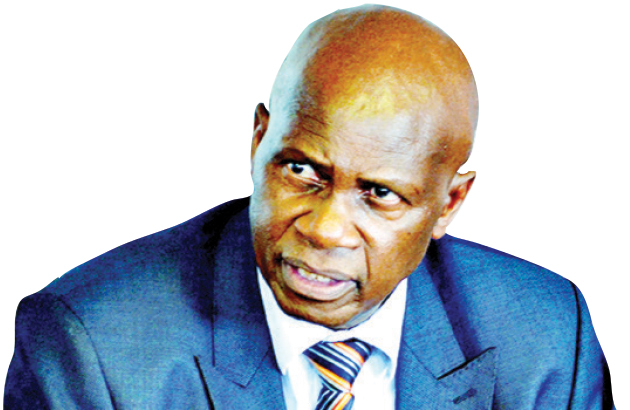CIVIL SERVICE JOB CUTS LOOM

-
Wage bill too high: Chinamasa
-
1,000s of public sector jobs to go
Rumbidzayi Zinyuke Harare Bureau
THOUSANDS of public sector jobs will go after Finance Minister Patrick Chinamasa (pictured top) yesterday announced plans to slash the bloated civil service wage bill from the current 80 percent of the national budget to below 40 percent, in line with the International Monetary Policy’s Staff Monitored Programme.
Presenting the Mid-Term Fiscal Policy Review Statement in Harare yesterday, Chinamasa said his ministry and that of Public Service, Labour and Social Welfare have made headway in this regard.
Reduction of the wage bill to below 40 percent of budget expenditure is on the list of recommendations in the SMP that Zimbabwe agreed with the IMF to ease the country’s excessive debt burden.
“The government is concerned with the level of resources from the national budget that employment costs continue to absorb at the expense of developmental expenditures and expenditures in support of government operations in public service delivery,” Chinamasa told Parliament.
“Cabinet recognises that this is unsustainable, hence it has given a directive to the minister responsible for public service and the minister responsible for finance to urgently propose remedial actions to gradually bring down the share of the wage bill in the budget from over 80 percent to under 40 percent.”
The two ministries have already undertaken an extensive exercise engaging the line ministries benefiting from the technical support and coordination of the Civil Service Commission, the Judicial Services Commission and the Health Services Board.
Chinamasa said the Civil Service Commission has also completed a physical head count of all civil servants as part of the exercise.
“Cabinet will be considering the full package of necessary proposals in the next couple of weeks,” he said.
No up-to-date official figures of the number of public sector workers exist, but estimates say 83 percent of the government’s $2 billion costs were going to the salaries of 554,000 employees.
In the long term, the minister said, shedding unnecessary staff would result in improved pay.
Speaking on the recent Supreme Court ruling that has seen more than 9,000 employees in the private sector lose their jobs, Chinamasa said it had triggered a necessary debate.
He said labour laws would be reviewed with a view to protecting the rights of both the employee and the employer while at the same time ensuring continued survival and viability of businesses.
“Any position of imbalance and in favour of one party to the detriment of another is bound to bring negative implications to both parties and the economy,” he said.
He said parastatals were already struggling with a huge wage bill backlog which is threatening their viability, giving an example of Ziscosteel (NewZim Steel) which has accrued payroll liabilities of over $131,5 million in the five years it has not been operational.
Air Zimbabwe has salary arrears amounting to $136,4 million while the National Railways of Zimbabwe is at $140,1 million and GMB $20 million.
“Such situations neither serve the interest of the employer nor the employee nor the tax payer nor the economy as such entities become unattractive to any potential investor or strategic partner,” he told MPs.
“Therefore, the debate over the Supreme Court ruling, and the subsequent reforms to the Labour Act, need to balance in the interest of economic recovery.”
He said the Tripartite Negotiation Forum, a body representing employers, employees and the government has agreed on a position which has also been accepted by the Cabinet committee on legislation. The recommendations will be placed on next week’s Cabinet agenda.
“The recommendations, if accepted by cabinet, will serve the interest of employees, business and the economy,” he added.










Comments